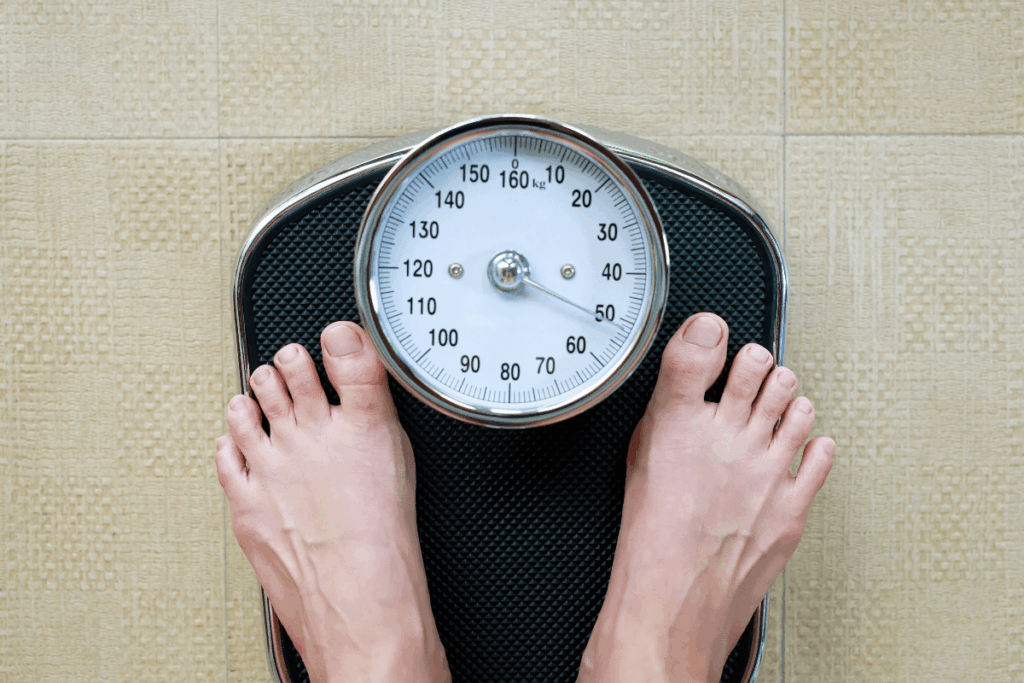Does Anti-Anxiety Medication Cause Weight Gain?
Anti-anxiety medications have transformed the way we treat mental health conditions like generalized anxiety disorder (GAD), panic disorder, and social anxiety. These medications can help people regain control of their lives by reducing the physical and emotional toll of chronic anxiety. However, one common concern that often arises is the potential for weight gain as a side effect. This question—”Does anti-anxiety medication cause weight gain?”—is not only valid but important to consider, especially for those weighing the benefits and potential drawbacks of starting medication.
In this article, we’ll explore how anti-anxiety medications might lead to weight gain, which medications are most commonly associated with this side effect, and how you can manage or even prevent it. Our goal is to give you a well-rounded understanding of what to expect and how to make the best decisions for your mental and physical health.
If you or a loved one are struggling with mental health and its related symptoms, don’t wait to seek help. Call us today or visit our admissions page to start your path to healing.
Understanding Anti-Anxiety Medications
There are several types of medications commonly used to treat anxiety, and each class works differently in the brain. Some of the most commonly prescribed categories include:
- Selective Serotonin Reuptake Inhibitors (SSRIs): Often the first line of treatment, SSRIs increase serotonin levels in the brain and are widely used for anxiety and depression.
- Serotonin-Norepinephrine Reuptake Inhibitors (SNRIs): These target both serotonin and norepinephrine and are sometimes preferred for people who don’t respond to SSRIs.
- Benzodiazepines: Fast-acting sedatives used for short-term anxiety relief. These are usually not a long-term solution due to their addictive potential.
- Tricyclic Antidepressants (TCAs): Older medications that are still prescribed in some cases, though they often have more side effects.
Each medication has a different profile when it comes to side effects, including the potential to influence weight.

Why Do Some Anti-Anxiety Medications Cause Weight Gain?
Weight gain from anti-anxiety medications is not guaranteed, but it is a possibility—especially with certain drugs. Here’s why:
1. Changes in Appetite
Some medications increase serotonin or dopamine levels, which can boost your appetite. This might lead to increased calorie consumption, even if you’re not fully aware that you’re eating more than usual.
2. Metabolic Shifts
Certain medications may slow your metabolic rate or alter how your body processes fat and carbohydrates. Even if your diet remains the same, your body may burn fewer calories, leading to gradual weight gain.
3. Reduced Activity Due to Fatigue
Sedation and fatigue are common side effects of many anti-anxiety medications. If you’re too tired to engage in physical activity or daily movement, this reduction in energy expenditure can contribute to weight gain over time.
4. Emotional Rebound and “Comfort Eating”
For some, alleviation of anxiety symptoms may result in an increased interest in food and social events involving eating. Others may cope with lingering anxiety or mood changes by turning to food for comfort.
Which Anti-Anxiety Medications Are Most Associated With Weight Gain?
While not everyone will gain weight, some medications carry a higher risk:
- Paroxetine (Paxil): This SSRI is known for its higher likelihood of causing weight gain compared to other SSRIs.
- Mirtazapine (Remeron): Technically an antidepressant, it’s sometimes prescribed off-label for anxiety. It’s strongly associated with increased appetite and significant weight gain in some patients.
- Amitriptyline and Nortriptyline: These tricyclic antidepressants are more likely to cause weight gain than newer medications.
- Benzodiazepines (e.g., Ativan, Xanax): While not always directly linked to weight gain, long-term use can result in fatigue and inactivity, indirectly contributing to weight changes.
On the other hand, medications like Bupropion (Wellbutrin) and Fluoxetine (Prozac) tend to have a lower risk of weight gain and are sometimes even associated with weight loss in some individuals.

Tips for Managing or Preventing Weight Gain on Medication
If you’re beginning or currently taking anti-anxiety medication and are worried about weight gain, there are several strategies you can try to manage or prevent it.
Monitor Your Weight and Eating Habits
Keep a log of your weight, mood, and dietary intake. This can help you and your healthcare provider identify trends and intervene early if necessary.
Incorporate Regular Exercise
Aim for at least 30 minutes of moderate activity five days a week. Exercise not only supports healthy weight but also improves mood and reduces anxiety naturally.
Choose Nutrient-Dense Foods
Focus on whole foods such as vegetables, fruits, lean proteins, and whole grains. Avoid high-sugar or high-fat comfort foods that are easy to overeat, especially during emotional lows.
Get Quality Sleep
Sleep quality can impact both your anxiety and your metabolism. Poor sleep has been linked to weight gain, so establish a consistent sleep routine.
Talk to Your Doctor
If weight gain becomes a concern, discuss it with your prescribing physician. You might be able to adjust the dosage, switch medications, or add another medication to help counteract weight-related side effects.
The Importance of Staying on Medication
It’s important to stress that no one should stop taking their medication suddenly without professional guidance. Discontinuing medication without medical supervision can lead to withdrawal symptoms, worsening anxiety, and other complications. If you’re experiencing distressing side effects, including weight gain, the best course of action is to consult your provider to explore options that preserve your mental health while minimizing unwanted outcomes.
Contact Us for Support
At The Meadowglade, we understand that treating anxiety involves more than just finding the right medication. We take a holistic approach that includes therapy, lifestyle coaching, nutritional counseling, and mindfulness-based practices to help you achieve lasting wellness.
If you’re worried about how your treatment may be affecting your weight—or if you’re struggling with anxiety and don’t know where to start—reach out to us today. Our compassionate team in Moorpark, California, is here to support you with personalized care every step of the way.
Your path to balance, clarity, and well-being starts here. Contact The Meadowglade today to learn more about our comprehensive mental health programs.










